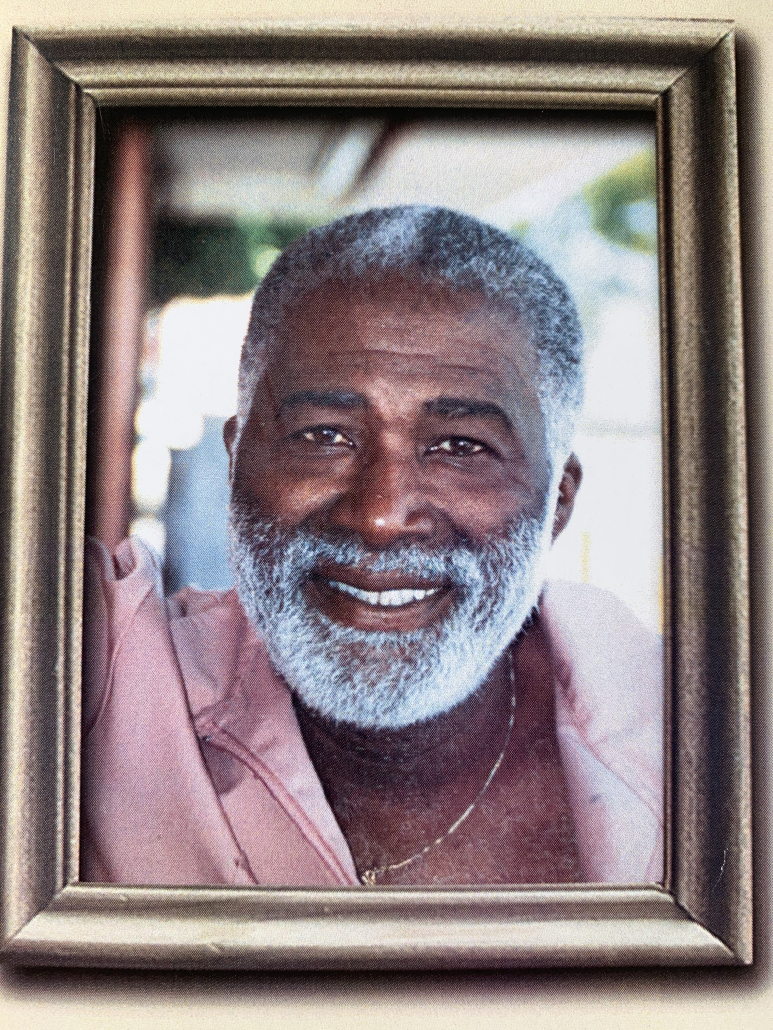Letter to the Editor: Farewell Tribute to an OG Patriarch of South Los Angeles

Something significant and noteworthy happened recently in South Los Angeles. Richard Earl Shelton passed away on Dec. 14, 2020 at the age of 86. During a global pandemic in which hundreds of thousands have lost their lives in the United States and in Los Angeles, this may not seem significant or noteworthy. However, for the Jefferson Park neighborhood near USC, this was a major loss. For you see Richard Shelton or “Pops,” as he was affectionately known, was the proprietor and owner of Shelton’s Barber Shop.
Richard Earl Shelton was born on Oct. 8, 1934 in Brenham, Texas. After graduating from high school, he moved to Los Angeles. He attended barber college and became a licensed barber in 1956. He began serving in the United States Army in 1957 and later received an honorable discharge. Richard attended night classes at Los Angeles Trade Technical College where he earned an associate degree in accounting.
In 1962, Richard opened Shelton’s Barber Shop on Washington Boulevard and 7th Avenue. The shop relocated to the corner of Western and Jefferson in 1969 and eventually to Vermont and Adams in 1997. Richard was raised in a God-fearing home and was a member of Trinity Baptist Church.
I first met Mr. Shelton when I entered USC as a 17-year-old freshman in the fall of 1981. I needed a place to get my hair cut, and Shelton’s was the go-to place for African American students at USC. Pops occupied the first chair in the shop. He welcomed every person, set the tone and was the gatekeeper who decided what was acceptable or not in the lives of those who entered.
Every time I went there while at USC, he would greet me and ask me how school was going. I always felt the pride in his voice when he would speak to me. For someone away from home at a university with very few Black students (less than 1% of all students), it meant a lot. For African American men at USC, Shelton’s was a place where we could connect with the local community and our culture. I always felt at home at Shelton’s.
For the first few years, I called him Mr. Shelton to give him the respect he deserved. Over the years as I got to know him, he became Pops. To me he was the African American version of James Bond. He had movie-star good looks and had “much game” and was “smooth” as we say in the Black community.
Pops had a wonderful soul. He had all the attributes of a role model – smart, confident, trustworthy, integrity, kindness, compassion, patience, strength and tenderness. He was a man’s man and there was no pretense or fakeness about him. He was God-fearing as well as a great friend, mentor, counselor and teacher to all with whom he came in contact.
He was a loving and caring father figure not only to his family but to all in the community. He would give the shirt off his back and help you in any way he could. He is responsible for helping and keeping many people in the neighborhood from going down the wrong path. He was one of the first successful Black businessmen and entrepreneurs I ever saw.
Quite simply, he was a father to the South Los Angeles community around USC and Jefferson Park. It is a misconception that we don’t have any male role-models in the African American community. Pops was the epitome of what an African American man should be. Not perfect, but always striving to be better each day. Simply put, he was a great man.
As most know in the Black community, a barbershop is much more than a place where you get your haircut. It is a community center, shopping center, newsroom, bully pulpit, a place of spirituality, support, education, tolerance, social justice, understanding, humor and love. It is one of the few places in the United States where African American men can maintain their respect and dignity. Simply put, an African American barbershop is a weigh station that educates African American men.
You see every part of the community in an African American barbershop — both good and bad. It is a place where the most successful to the most in need and everything in between come. It is where African American men learn what a Black man is, should be and should not be. No one disrespects the barbershop. It is sovereign ground in the African American community.
Many sons have graduated from Shelton’s Barber Shop on their way to doing great things in Los Angeles, the United States and the world. I am a proud alumnus of Shelton’s Barber Shop and of the Richard Earl Shelton Life Academy.
This loss may not seem like much in the context of a global pandemic, but South Los Angeles has lost one of its patriarchs. Perhaps the real point is that every single person who has lost their life during this pandemic is significant within their sphere of influence.
Richard Earl Shelton’s sphere of influence was enormous as it includes every person who entered the door of Shelton’s Barber Shop. Pops sprinkled us all with “game” so that we could further his legacy. Shelton’s Barber Shop is now in the capable hands of his son, Randy Shelton, and I now bring my son there for his education.
Charles H. Evans IV
USC Alumnus

